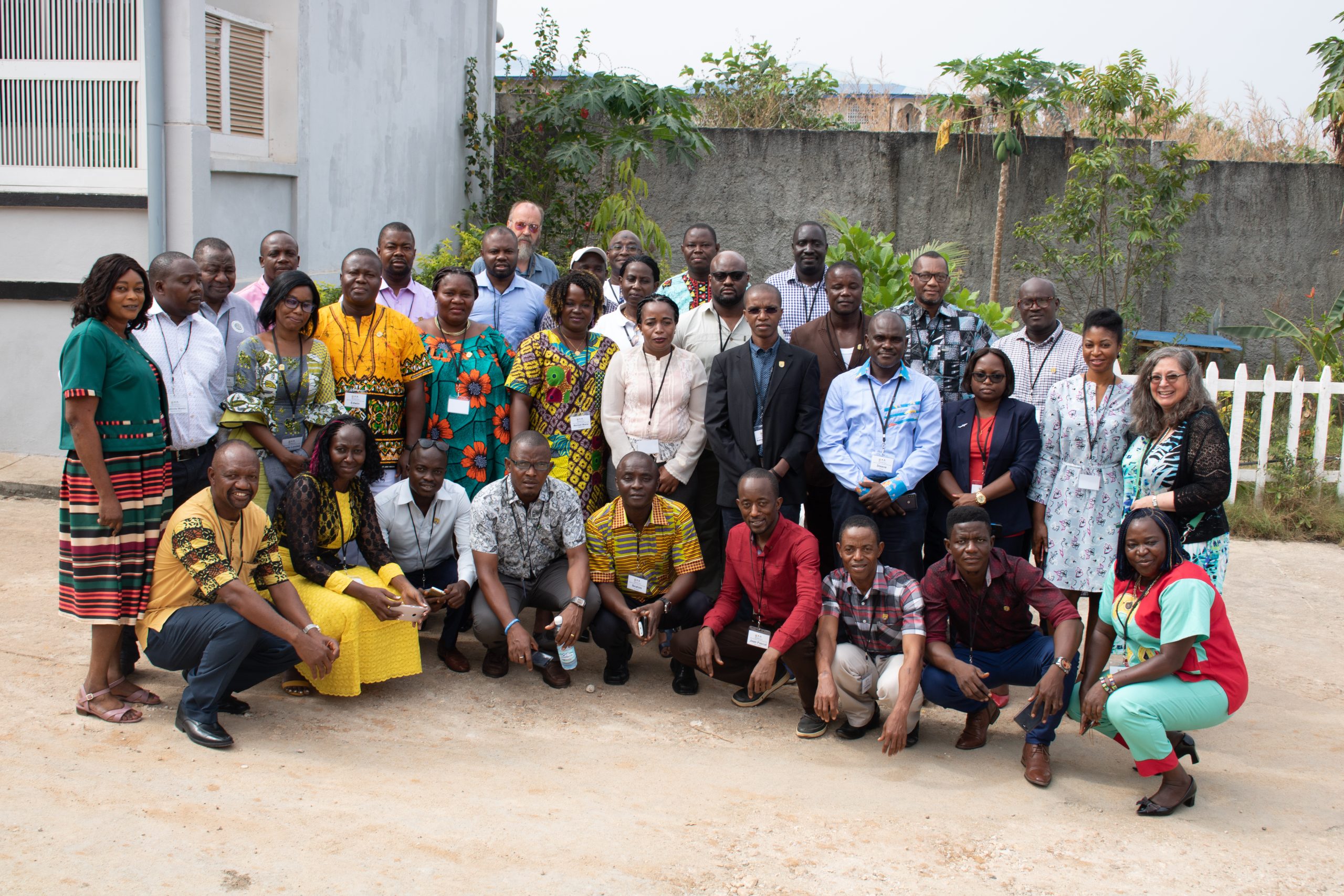Conservation in Practice with The MENTOR Program
Using the Conservation Standards to train the next generation of Conservation Standards users
by USFWS MENTOR Program
Anne Ntongho, Senior Monitoring and Evaluation Officer at WWF and the Conservation Coaches Network Franchise Lead for Central and West Africa, often finds herself surrounded by young conservationists inspired to make a difference in their communities and eager to listen to her wisdom on how to make that happen through the use of the Conservation Standards.
Anne’s passion for preserving biodiversity and her work with the Conservation Standards have brought about transformative change, particularly through her involvement with the US Fish and Wildlife MENTOR Fellowship Program. This program brings together interdisciplinary teams of early career conservationists to focus on key species. Anne finds immense satisfaction in teaching the Conservation Standards to colleagues and partner organizations, particularly when delivering the adaptive management course to MENTOR Fellowship Program Fellows.
“I am very excited when teaching the Conservation Standards to colleagues and partner organizations. My best moments are giving the course of adaptive management to the US FIsh and Wildlife Service MENTOR Fellowship Program Fellows.
Through theoretical analysis and a deeper understanding of conservation targets, she has witnessed the transformation of these passionate Fellows. Equipped with the knowledge gained from the Conservation Standards, they are now better positioned to deliver impactful conservation actions.
About the MENTOR Program
The U.S. Fish and Wildlife Service’s MENTOR Fellowship Program builds conservation leadership among teams of transdiscilinary professionals – initially across Africa, but now expanding to other parts of the world. Building on academic and field-based training, MENTOR connects teams of Fellows with long-term Mentors: senior conservation leaders and international experts who guide the Fellows, teach problem-solving techniques, and foster the development of creative solutions in a learning partnership that continues throughout the Mentors’ and Fellows’ careers.
MENTOR programs have developed conservation leadership across various issues, including the bushmeat trade, extractive industries, fisheries management, and the unique challenges of manatee, great ape, and pangolin conservation. Fellows earn post-graduate degrees, diplomas, or certificates from national and regional colleges and universities.

Since launching in 2008, we have implemented seven MENTOR programs, with attendance by 61 Fellows from 11 African countries. The most recent program to be launched is MENTOR-Bat, which is global in scale.
Download CS
The Conservation Standards is the product of inputs, field tests, and discussions among members of the Conservation Measures Partnership (CMP), which has final editorial authority over the Conservation Standards. Substantial input was also provided by members of the Conservation Coaches Network (CCNet) and other CMP partners.
Photo Credit: Felix Cybulla
Support CS
The biodiversity conservation community is tackling large, complex, and urgent environmental problems where the stakes are high. However, we don’t have a fully functional system to assess the effectiveness of our actions. Without more rigorous measurement of effectiveness and disciplined recording of our efforts, we cannot know or demonstrate that we are achieving desired results.
Photo Credit: Felix Cybulla
Our Collaborators
Every organization, agency, project, and individual has its own preferred set of terms. There is no right answer – the most important thing is that the members of your project team and the people with whom you work have a clear and common understanding of whatever terms you choose to use.
Photo Credit: Chris Scarffe
Contact Us
To inquire about supporting Conservation Standards (CS) or for general inquiries, please contact us at CMPinfo@ConservationMeasures.org
Photo Credit: Nature Conservancy of Canada
